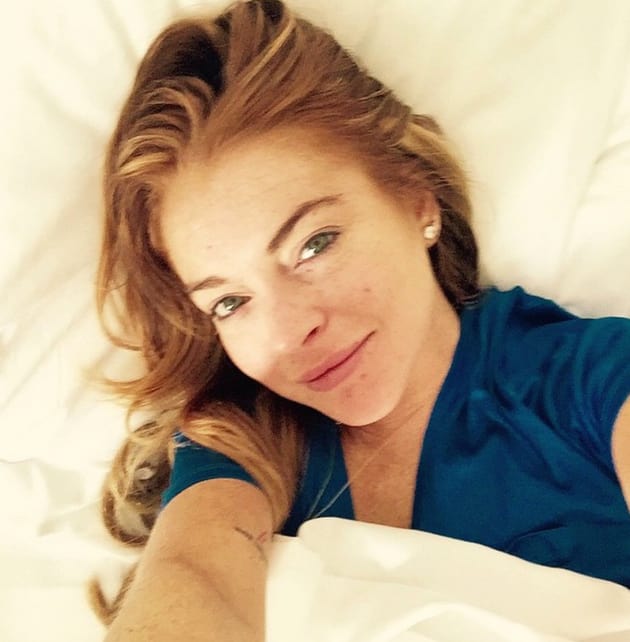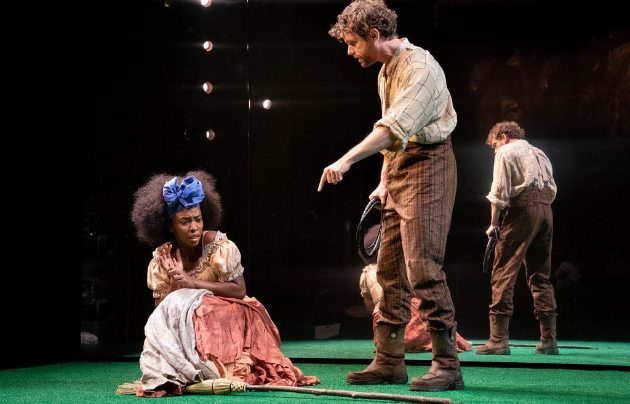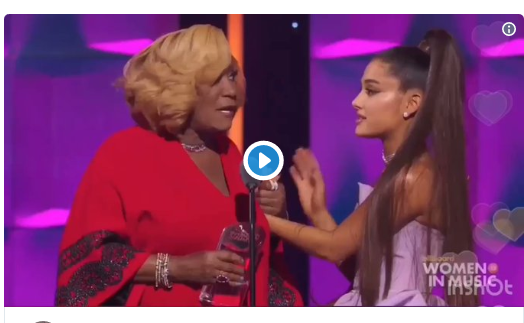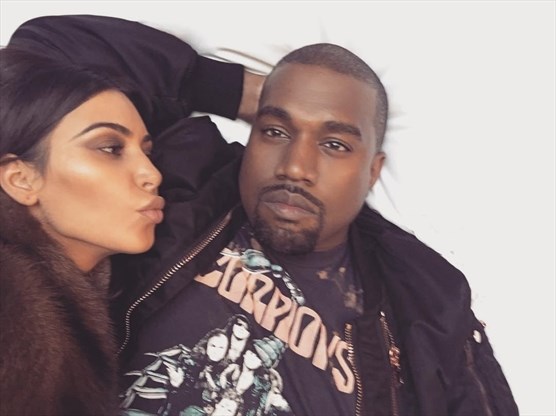The Original Story of Kimba/Simba controversy
Hollywood could never come up with something original they’re always stealing and one state stolen the greatness from someone else. The producers directors never give credit where credit is due especially if it’s a minority .
Review: Race and Sex in Plantation America in ‘Slave Play’
Kaneisha begs Mista Jim, her overseer on the MacGregor plantation, to call her a “nasty Negress” as he forces himself upon her.
Mistress Alana, the lady of the manor, lustily wields her mother’s hand-me-down dildo to penetrate Phillip, her violin-playing house slave.
Elsewhere on the Virginia plantation, Gary, who is black, makes a white indentured servant named Dustin bring him to orgasm by licking his boots.
That’s how “Slave Play,” which opened on Sunday at New York Theater Workshop, begins — and then it gets really outrageous.
Saying much more would mean giving away at least one huge surprise that this willfully provocative, gaudily transgressive and altogether staggering new play by Jeremy O. Harris has in store. And yet its urgency and sheer cultural heft, deployed like weapons in a furiously entertaining production directed by Robert O’Hara, don’t leave much choice. It all but demands to be — in its own terminology — processed.
So proceed with caution, and let’s make “spoiler” our safe word, shall we?
Not that there’s much pretense to narrative normalcy. You will know something’s askew even before you get to the end of the first of those quasi-pornographic playlets. Kaneisha (Teyonah Parris) is more assertive — and Mista Jim (Paul Alexander Nolan) more nervous — than you would expect in a real antebellum encounter. Then, too, Kaneisha is occasionally overtaken by musical fits in which Rihanna’s song “Work” causes her to twerk.
Music plays a role in the other sex scenes as well. Mistress Alana (Annie McNamara) can’t stand the “new” tunes by Beethoven that Phillip (Sullivan Jones) prefers to play; she instead demands a spiritual, or whatever it is that makes “the ladies down at y’all’s cabin” swoon.
And as Gary (Ato Blankson-Wood) starts to dominate Dustin (James Cusati-Moyer), he is suddenly overcome by the song “Multi-Love,” a 2015 hit from Unknown Mortal Orchestra.
Though Mr. Harris is still in drama school, and “Slave Play” is his first professional New York production, he writes as if he’s known all his life how to twist audiences into all kinds of pretzels. In particular I can say as a white person that he manipulates white discomfort expertly to the advantage of his storytelling. Until I encountered his potent brew of minstrelsy and melodrama I hadn’t known it was possible — except perhaps in plays like “Bootycandy,” by Mr. O’Hara — to cringe and laugh and blush at the same time.
So it comes as a relief, at first, when the play completely changes course about a quarter of the way through its intermissionless two hours. The six characters now reappear — spoiler! — as contemporary interracial couples in sex therapy.
[What’s new onstage and off: Sign up for our Theater Update newsletter]
It seems that the MacGregor plantation has become a resort and conference center; the couples are there as part of a weeklong program run by the social scientists Teá (Chalia La Tour) and Patricia (Irene Sofia Lucio), late of Smith and Yale. Their program focuses primarily on helping the black participants, who are no longer able to receive pleasure from their white — or whiter — partners. The scenes we saw at the beginning of the play were their therapeutic fantasies, spun out in role-play.
Mr. Harris does not squander the satirical opportunities this setup offers. Words like “positionality,” “minoritarian” and “heteropatriarchal” get quite a workout as Ms. La Tour and Ms. Lucio mine characters whose intelligence has been co-opted by cant. And though some of this material could use pruning, Mr. O’Hara proves the perfect collaborator in staging it, playing the comedy so bright and dense that you don’t have the bandwidth to grow bored. Nor do you notice, until you’re too far along, that comedy is not all it is.
Because the thing about this therapy — perhaps like the play — is that it works not despite but because of its absurdity. Teá and Patricia’s “processing” of the black participants’ fantasies gives them access to insight that their social conditioning had previously obscured.
None of that insight is welcome news for their partners. If Dustin, Alana and especially Jim — a Brit who finds the whole concept insane and traumatizing — are unable to see what their whiteness has to do with it, we in the audience see it all too clearly. Gary, Phillip and Kaneisha exist “squarely in the blind spot of their nonblack partner,” a phrase that is no less damning for being clinical.
Though all of the black participants have psychological cofactors, including obsessive-compulsive disorders, it misses the point to say the deck has been stacked. Mr. Harris isn’t making a universal statement about individuals in interracial partnerships; he’s aiming at the interracial partnership of America as a whole. By the time the play, which has a classical form much like a sonata, reaches a final scene involving just one of the couples, its sharp narrowing in feels like a vast broadening out. In plantation America, which in Mr. Harris’s cosmology is both antebellum and post-, can white people learn to love black people — not just their music and their plays — as actual black people, on black people’s terms?
Article via NYTimes
Too Far? Patti LaBelle Called Ariana Grande A ‘Black, White Girl’ And Twitter Explodes
Patti LaBelle is a soul legend and when she thinks someone has the pipes or the range, she has no problem showing some love. However, her compliment to pop singer Ariana Grande has some people giving Patti-Patti the side-eye.
While being honored as Billboard’s Woman of the Year, Patti said, “I’m thrilled to be among so many wonderful friends to present this year’s ultimate honor to Billboard’s Woman of the Year. A young woman who has it all — she’s soulful, strong, and she’s just sensational. She’s all that and a bag of chips. She’s a giant talent who sings from the heart, as I learned when we sang together at the White House for President Obama and Mrs. Obama. She tore it down. Honestly, she can sing her face off.”
Patti then said, “She asked me some questions one time. Remember when we did the President’s stuff? And you said, ‘Patti, what should I do?’ I said sing like that little white, Black girl that you are. She got soul like a mug!” She added, “My son told me not to say that, but it’s true.”
Grande, looking a bit mortified, responded, “Your son was probably right.” See below:
Twitter was obviously outraged by the 74-year-old comment, but let’s hope people given Patti a pass. This is arguably one of few hiccups in a 50 plus so career. Furthermore, Patti is allowed to have an opinion on voice since she is one of the greatest of all time.
Article via NewsOne
Viola Davis Proclaims “I Cannot Lead With Bull—” at Hollywood Reporter Women in Entertainment Event
At The Hollywood Reporter’s Women in Entertainment event on Wednesday, Davis was honored with the Sherry Lansing Leadership Award, given annually to a woman who is a trailblazer and philanthropic leader in her industry.
Viola Davis is speaking her truth, and speaking out about being a black woman in Hollywood.
At The Hollywood Reporter‘s Women in Entertainment event Wednesday, Davis was honored with the Sherry Lansing Leadership Award, given annually to a woman who is a trailblazer and philanthropic leader in her industry. When she took the stage, the star revealed how it can feel for her as a black actress, comparing her feelings to a scene in The Exorcist when a possessed young girl lifts up her nightgown to show “Help me” written on her stomach.
“She’s somewhere in that body but being possessed by these demons, but somewhere she musters up enough courage to say ‘Help me.’ That’s how I feel everyday in this Hollywood community and in my life, in trying to live my authentic life,” Davis told the audience at Los Angeles’ Milk Studios. “The demons aren’t gargoyles, they aren’t men with pointy noses and ears — they’re other people’s desire for your life, people who don’t see you. People who stereotype you. People who take your pathology, your complexity, everything away from you.”
The honoree continued, “How you have to water yourself down in order to meet the standards of the community who are in charge, who is not mine. That’s how it feels. And I’ll tell you the worst demon of all is a lack of purpose because let me tell you something, you do not have to know what is in the hearts of people to be a leader, but, by God, you have to know what is in the heart of the leader. And what is in my heart is I cannot lead with bullshit.”
Davis spoke about bringing change to the industry with her production company JuVee productions, which she runs with husband Julius Tennon, and aiming to tell more diverse, inclusive stories.
“We started it because I got tired of always celebrating movies that didn’t have me in it. I don’t mean me Viola, I mean me as a black woman. I was tired of seeing the expansive imagination of writers when they wrote the mess, the joy, the beauty, the femininity of white characters,” she said. “Maybe an hour into the movie you saw the obligatory black character just kind of walking into the camera, who had a name but didn’t really need to have a name because we know nothing about them.”
The actress called out The Brady Bunch, Gilligan’s Island, Leave It to Beaver and similar shows as being “a lie,” and added, “embrace the truth, that’s my biggest gift.” She also commended Steve McQueen, Barry Jenkins, Ryan Coogler and Greta Gerwig for their wild spirits and for being “people who just dare, who say, ‘You cannot silence me.'”
To wrap up her speech, Davis said, “my big thing with JuVee Productions is there is no limit to how we see narratives for people of color — that there’s only so much that I’m going to kowtow to this business. My gift to anyone is that. Don’t let anybody tell you who you are. … This is my fist pump. This is my drop the mic. This is me.”
The award was presented by Lansing herself, who commended Davis as someone who “empathizes with the underserved and she gives a voice to those who are silenced. Viola has never forgotten where she came from and she pays it forward to make sure others don’t have to suffer like she did.”
Aside from her Oscar-, Emmy- and Tony-winning career, the star is a leader in the fight against child hunger, serving as an ambassador for charitable initiative Hunger Is from 2014 to 2017, which raised more than $20 million to provide meals for children across the U.S. Additionally, Davis has worked to end poverty in her hometown of Central Falls, Rhode Island, and has donated to its public library, her high school alma mater and the charter school Segue Institute for Learning. Through her partnership with the Vaseline Healing Project, Davis returned to Central Falls in 2016 to launch a free health clinic for residents unable to afford health care. The actress has also been outspoken on issues of racism, pay inequality and sexual abuse in Hollywood.
Davis joins past Lansing Award recipients Tina Fey, Barbra Streisand, Shonda Rhimes, Oprah Winfrey, Diane Keaton, Jane Fonda, Helen Mirren, Halle Berry, Jodie Foster, Glenn Close, Barbara Walters and 2017 honoree Jennifer Lawrence.
The Power 100 Women in Entertainment event presented by Lifetime is sponsored by American Airlines, Cadillac, Fiji Water, eOne, Gersh, Loyola Marymount University and SAG-AFTRA, in partnership with Big Brothers Big Sisters of Greater Los Angeles and Entertainment Industry Foundation.
Article via HollywoodReporter
Kim Kardashian Was ‘Hysterically Crying’ After Kanye West Called Slavery a ‘Choice’
In a sneak peek from Sunday’s episode of Keeping Up with the Kardashians, the reality star discusses her husband’s controversial slavery comments.
“He’s doing good; everyone thinks he’s having a breakdown,” Kardashian says after her friend Jonathan Cheban asks how the rapper is doing just days after the incident.
In May, West made headlines after implying that slavery was a “choice” for African-Americans during an interview on TMZ Live, where he also repeatedly proclaimed his love for polarizing President Donald Trump.
Accompanied by conservative commentator Candace Owens, the outspoken artist sounded off on the centuries African-Americans spent shackled in servitude.
“You hear about slavery for 400 years. For 400 years?! That sounds like a choice,” he said. “You were there for 400 years and it was all of y’all? It’s like we’re meant to be in prison. I like the word ‘prison’ because slavery goes too direct to the idea of blacks…Prison is something that unites us as one race.”
Kardashian admits that she drove home “hysterically crying” to check on West.
“I rushed home, I was hysterically crying,” she recalls. “So I go home…he’s totally fine.”
But Kardashian says she wasn’t surprised to find her husband in a relaxed state amid the scandal.
“When he gets ramped up, he can’t control what he says, he can’t let it go,” she explains. “He loves being ramped up. He’s like ‘I feel powerful when I’m ramped up. I don’t want to be so suppressed. Yeah, I say crazy s— but I’ve always said crazy s—. That’s why I’m Kanye.’”
And no matter what the rapper does or says, Kardashian says she will always have West’s back.
“I always know what Kanye’s intentions are and what he’s trying to say, but I also know that they’re gonna write a headline and people are gonna assume that that’s exactly what you said and what you meant,” she says. “He didn’t say slavery is a choice, he was saying if you’re gonna still be enslaved for another 400 years then that’s some bulls—.”
Article via People











